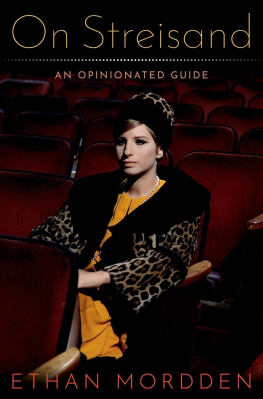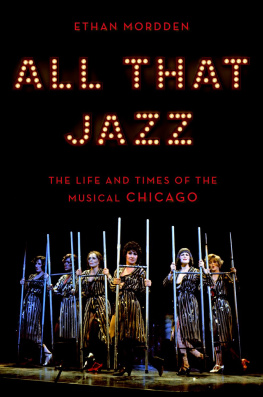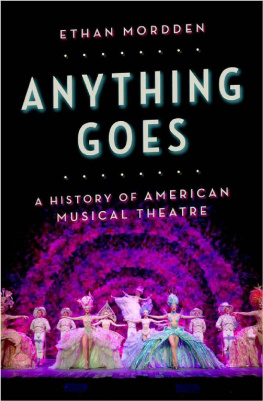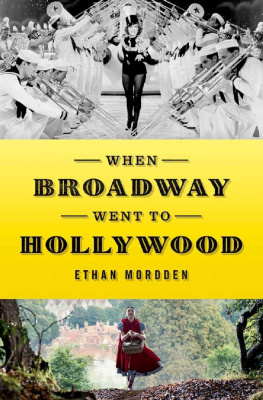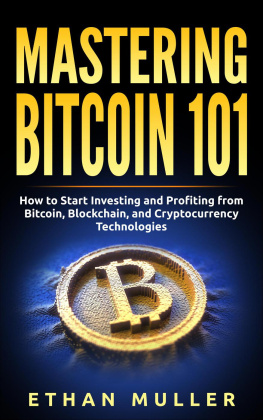Ethan Mordden - Buddies
Here you can read online Ethan Mordden - Buddies full text of the book (entire story) in english for free. Download pdf and epub, get meaning, cover and reviews about this ebook. year: 1986, publisher: St. Martin’s Press, genre: Art. Description of the work, (preface) as well as reviews are available. Best literature library LitArk.com created for fans of good reading and offers a wide selection of genres:
Romance novel
Science fiction
Adventure
Detective
Science
History
Home and family
Prose
Art
Politics
Computer
Non-fiction
Religion
Business
Children
Humor
Choose a favorite category and find really read worthwhile books. Enjoy immersion in the world of imagination, feel the emotions of the characters or learn something new for yourself, make an fascinating discovery.

- Book:Buddies
- Author:
- Publisher:St. Martin’s Press
- Genre:
- Year:1986
- Rating:3 / 5
- Favourites:Add to favourites
- Your mark:
- 60
- 1
- 2
- 3
- 4
- 5
Buddies: summary, description and annotation
We offer to read an annotation, description, summary or preface (depends on what the author of the book "Buddies" wrote himself). If you haven't found the necessary information about the book — write in the comments, we will try to find it.
Buddies — read online for free the complete book (whole text) full work
Below is the text of the book, divided by pages. System saving the place of the last page read, allows you to conveniently read the book "Buddies" online for free, without having to search again every time where you left off. Put a bookmark, and you can go to the page where you finished reading at any time.
Font size:
Interval:
Bookmark:

The author and publisher have provided this e-book to you for your personal use only. You may not make this e-book publicly available in any way. Copyright infringement is against the law. If you believe the copy of this e-book you are reading infringes on the authors copyright, please notify the publisher at: us.macmillanusa.com/piracy.
Contents
To
Chuck Ortleb
The author wishes to acknowledge the guidance and stimulation of his editor and friend, Michael Denneny, who has committed a substantial portion of his career to the nurturing of a literature for the age of Stonewall. Some years hence, when the chronicles are written, his entry in the indices will be rich.
The French tend to write about manners, the Germans about knowledge, the English about sex. Americans write about families, gay Americans particularly. The gay writers unique contribution to literature, the Bildungsroman of gathering self-awareness and coming out, is essentially a family novel; and our secondary invention, the New York camp-surreal romance, is notable for its desperate flight from the family, its attempt to reconstruct an existence without any relations but those we choose ourselves. Yet our family haunts us, like it or not, in allusions rapt and rueful. At times, all gay fiction, even (perhaps especially) porn, seems fascinated by father and brother figures, masked and idealized as passing strangers, companions, lovers.
The human need for romance, for erotic affection, is basic to storytelling. Most narrative art, from Ulysses to Carousel, from The Sheik to Loves Labours Lost, celebrates it; and it is everywhere about us in our daily lives, in the touch of strolling couples, in scandals and wedding announcements in the newspapers, in acceptance speeches on awards nights. This is why the younger and less worldly gays are surprised when straights express irritation at the slightest public show of gay romance. Gays think theres room for everyone; most straights are willing to make room for gays on the condition that gays pretend they dont exist. Thanking ones wife for support is a convention; thanking ones male lover is a subversive act.
Yet, despite straights lack of comprehension and outright intolerance, gays inevitably comprehend straights, because, whatever our sexuality, we all grow up within the straight culture as participators. You can be homosexual from birth, but you cant be gay unless you voluntarily enter the gay world, a culture all its own. Gays understand straights; but straights dont understand gays any more than whites understand blacks or Christians understand Jews, however good their intentions. Gay is a unique minority: strictly elective. If, called to the colors, you resist, no one may ever know who you really are.
This may be why The New York Times is so fanatic about terming gays homosexuals. Its like calling blacks niggers, calling Jews kikes. It demotes them, questions their right to a culture. But black and Jewish separateness is inevitable; visual, aural, historical. Gays dont have to be gay. Denying their right to be is the act of a repressive father trying to herd errant sons back into the heritage, into the lifes roles assigned them: back into the family.
So if the gay and straight worlds touch, it is only in the experiential sensibility of gays. Yet the two share one important element, a need for friendship, for nonerotic affection: for buddies. It is an American obsession, from Moby-Dick through Of Mice and Men to The Sting; and American gay life, in what I believe is its most compelling iconoclasm, has bettered the straight world in combining romance and friendship. Ones lover is ones buddyand who knows if the father- or brother-lover is not meant as much to eroticize ones only lifelong relationships as to soothe the less permanent relationships of ones love life: to accommodate the fierce and the tender, rivalry and alliance, at once?
This book is about these unique friendships, mostly gay ones but also some straight ones and even a few between gays and straights. Here, too, are fathers and brothers and recountings of family legends, of men in their youth, when rivalry often develops more naturally than alliance. In an earlier story collection, Ive a Feeling Were Not in Kansas Anymore, I tried to show how gay life behaves; this time, I want to show how it feels, how it pursues its self-discovery. This book is different also on the technical level, structurally, for these are more pieces than stories, counting character studies, nostalgic recollections, and essayistic analyses as well as outright tales.
As before, my setting is New York, where gay has most thoroughly, most variously, come out. If the first will of Boston is work, the first will of San Francisco is sex, and the first will of Los Angeles is money, New York cannot choose. It needs all three at once, and so do my characters. But they need one other thing, perhaps above all: comradeship. I have known men whose need drove them to a multiplicity of sexual adventures with partners they knew as slightly as possible, and men who could communicate sexually only through a personal intensity. Men who would do anything but kiss, and men who did little else. Men who would Go With Anything and men who could only touch themselves. Yet all traveled the Circuit, treated the metropolis as their private lonely-hearts club. Sometimes I think they seek someone better than they are; sometimes I think no, they seek themselves. And sometimes the two searches are one. This is what makes our times interesting.
An introduction to the whole, in which our boy propounds his rules for growing up and coming out.
My two younger brothers have driven up from Los Angeles to visit my folks in Sacramento; I call in from the metropolis, New York. Brother Andrew is on the phone, and in the background the dogs and Mother are barking. No, you cant make pizza! she cries. Get out of the refrigerator! Where did you find that revolting shirt? Your socks dont match! Wash your hair! Who left these dishes in the sink? Dont you dare touch that cheeseI said you cannot make pizza! The kitchen is closed! And stop that belching; Im not one of your contemporaries, you know!
Guess who hasnt mellowed? says Andrew.
Actually, she has. My dad, as a character in my childhood, was as peaceful as a Rodin, ensconced in his chair, dreaming deep in a book (whereupon we kids would hit him for advances on our allowanceby my fourteenth birthday I was overdrawn through 1997). But Mother was a series of interrogations, moralistic harangues, and grouchings. She would even attempt making corporal correction upon us (we would simply head for the dining room and run around the table until she wore out or caught my littlest brother Tony). Two less alike parents there never were. Yet they agreed on the basics: love them, give them culture, and treat them for life as if they were permanently stuck at the age of eight.
Parents are tyrants, even the nice ones. I recommend taking the offensive as surely and early as possible, never letting upand my system works, for I had a reasonably cute childhood, an amusing adolescence, and a profitable teenage career. My oldest brother Ned, a vaguely Fitzgeraldian figure, made a stab at defining a code for us kids, but it wasnt a conquering code. It reflected too much, stuttered, yearned. A code should confront. Ned was more afraid of taking power than of suffering engulfment. Through trial and error, I trimmed his romantically elaborated novel of wistful resistance into a terse handbook whose name was Defiance:
Rule One: Dont try to love Them; just get along with Them. Love in families only makes for ghastly scenes that will haunt you for life.
Next pageFont size:
Interval:
Bookmark:
Similar books «Buddies»
Look at similar books to Buddies. We have selected literature similar in name and meaning in the hope of providing readers with more options to find new, interesting, not yet read works.
Discussion, reviews of the book Buddies and just readers' own opinions. Leave your comments, write what you think about the work, its meaning or the main characters. Specify what exactly you liked and what you didn't like, and why you think so.

